
|
|
Issue Number 13 • Tuesday, March 20, 2018 |
Campus ChampionNatasha McFadden, associate director of the Cortland Fund, drives the energy of SUNY Cortland’s young philanthropists. As co-advisor of the Student Government Association group SPARK, director of the Young Alumni Giving Project and head of the Call Center’s student staff of Dragon Dialers, Natasha helps build stronger ties between alumni and students while sharing with them the importance of giving. Join Natasha in philanthropic participation by supporting the #CortlandChallenge on Wednesday, March 21, during our annual 24-hour day of giving. Gifts we make will infuse resources with much-needed support and, more importantly, they will demonstrate our steadfast commitment to our students. Tuesday, March 20Open Mic Night: Corey Union Exhibition Lounge, 7 p.m. Wednesday, March 21Sandwich Seminar: “Campus Gender Climate: What Can We Do to Change It? Presented by Title IX Coordinator Nan Pasquarello and Economics Professor Kathleen Burke, Brockway Hall Jacobus Lounge, 12:30 to 1:30 p.m. Brooks Museum Lecture Series: “Freedom in the Balance: Free Speech Rights and the Current Global Context,” Presented by Roy S. Gutterman, associate professor of communications law and journalism, Syracuse University, Moffett Center, Room 2125, 4:30 p.m. A reception to welcome the speaker begins at 4 p.m. in the Brooks Museum, Moffett Center, Room 2126 Thursday, March 22Training: Active Shooter Preparedness, presented by University Police and open to campus community, Brockway Hall Jacobus Lounge, 5 to 6 p.m. View Emergency Preparedness webpage for more information and to view the active shooter video. Sandwich Seminar: “’Walking the Graveyard of my Poems’: Reading the Poetry of Kathleen A. Lawrence,” several professors will present a reading of poems written by communications professor Kathleen Lawrence, Brockway Hall Jacobus Lounge, noon to 1 p.m. March for Our Lives: Corey Union steps, 5:30 p.m. Inclement weather location: Corey Union Function Room Biology Lecture: “Mushrooms (Termitomyces) Farmed by Termites in Africa: Diversity, Utilization, Ethnomycology,” presented by Dawit Abate, professor of mycology, Department of Microbial and Cellular Biology, Addis Ababa University, Ethiopia, Bowers Hall, Room 1129, 6 p.m. Film: “I Am My Own Woman,” sponsored by The Project for Eastern and Central Europe (PECE), Sperry Center, Room 106, 7 p.m. Saturday, March 24Interfaith Center Blood Drive: 7 Calvert St., 9 a.m. to 2 p.m. To make an appointment, call 1-800-REDCROSS 5th Annual Mr. MOVE: Men of Value and Excellence host a pageant with competitions being judged in a variety of categories. Corey Union Function Room, 6 p.m. Monday, March 26SUNY Cortland Sports Medicine Symposium: Featured speakers are members of the Buffalo Bills athletic training and strength and conditioning staffs. Corey Union Function Room, 9 a.m. to 2:30 p.m. A keynote address by Hal Luther, assistant strength and conditioning coach for the Bills, is co-sponsored by Campus Artist and Lecture Series and is free and open to the public from 1 to 2:30 p.m. Distinguished Voices in Literature: Laurie E. Gries, author of Still Life with Rhetoric, sponsored by the English Department, Brockway Hall Jacobus Lounge, 5 p.m. Lecture: “Trans Feminism in the Trump Era,” presented by Blair Durkee. This talk draws from trans experience to address these questions and suggests strategies for strengthening the feminist movement and making it more inclusive as it moves forward, Sperry Center, Room 105, 7 p.m. Tuesday, March 27Lecture: “Coming of Age in the Other America,” presented by Stefanie Deluca, the James Coleman Professor of Sociology and Social Policy at Johns Hopkins University. As part of the Incllusion series sponsored by the Cultural and Intellectual Climate Committee, Sperry Center, Room 106, 4:30 p.m. Performance and Lecture: “Perform,” a lecture and concert for athletes, musicians, coaches and teachers by Paul Alexander ’82, offensive line coach with the Dallas Cowboys, in conjunction with the SUNY Cortland College-Community Orchestra, Old Main Brown Auditorium, 7 p.m. Wednesday, March 28Sandwich Seminar: “Sister Helen Prejean: A Life Devoted to Abolishing the Death Penalty,” presented by Karen Davis, Brockway Hall Jacobus Lounge, 12:30 to 1:30 p.m. Panel Discussion: “The Moment of Disclosure: A Panel of Students and Faculty Discuss Best Practices for Talking About a Student’s Accommodations Letter,” sponsored by the Disability Resources Office, Old Main Colloquium Room, 2 to 3 p.m. Lecture: “Public Education and Inequality in Post-War Northeast Sri Lanka,” presented by Darshan Ambalavanar, project manager, Church of the American Ceylon Mission, sponsored by Asian and Middle Eastern Studies and the Cultural and Intellectual Climate Committee (CICC), Brockway Hall Jacobus Lounge, 4:30 p.m. Thursday, March 29Training: Active Shooter Preparedness, presented by University Police and open to campus community, Brockway Hall Jacobus Lounge, 9 to 10 a.m. View Emergency Preparedness webpage for more information and to view the active shooter video. UUP Lunch Meeting: Park Center Hall of Fame Room, noon to 1 p.m. Buffet opens at 11:45 a.m. Sandwich Seminar: “Empowering Women to Improve Sexual Health in Southwestern Haiti,” presented by associate professor of health Jena Nicols Curtis, Brockway Hall Jacobus Lounge, 1 to 2 p.m. Monday, April 2Environmental Documentary: “Vanishing of the Bees” (2009) addresses humanity’s reliance on the honey bee species and investigates the potential causes of Colony Collapse Disorder, which is doing considerable damage to the world’s bee population. A discussion facilitated by Sociology/Anthropology Visiting Assistant Professor Brock Ternes will take place following the video. Moffett Center, Room 2125, 7 p.m. Speak Up Panel Presentation on Sexual Violence: Students Active for Ending Rape (SAFER) and the Multicultural Greeks will host this It’s On Us Spring Week of Action event, Corey Union Exhibition Lounge, 7 to 8 p.m. |
OPEN, a SUNY Cortland Partner, Helps P.E. Teachers Across America03/20/2018A grassroots organization of teachers helping teachers — specifically in physical education — has a key partnership with SUNY Cortland, including a number of alumni and faculty. Aaron Hart M ’99 is the executive director of OPEN, the Online Physical Education Network, a public service of BSN Sports and U.S. Games. OPEN is a free service that uses a network of 42 national trainers to provide curriculum support and professional development experiences to physical education teachers across the country. To date, OPEN, which officially launched in March 2015, has seen more than 33,000 teachers download lesson plans and resources that have reached 17.5 million students. Through presentations and school visits, Hart has heard about the impact of the partnership firsthand. “The appreciation that the teachers had for the resources we’re providing them was just enormous,” he said. “I can’t even really express it.” Hart is an adjunct lecturer in SUNY Cortland’s Physical Education Department and had previously worked as a professional curriculum writer. In conjunction with Nick Kline M ’05, also an adjunct lecturer at SUNY Cortland and the Northeast manager for U.S. Games, Hart developed a model for creating and providing an open source curriculum for physical education teachers. Hart works with SUNY Cortland students in the Physical Education Department’s Activity and Movement Pedagogy (AMP) Lab in Park Center. BSN Sports and U.S. Games, retailers of athletic equipment and uniforms, decided to provide financial support for OPEN as a public service organization. The need for providing free curricula stems from two factors. One, many physical education teachers have an annual budget in the range of $400 to $500. Purchasing curricula from private companies often erodes most of that budget, leaving little money for purchasing new equipment. Two, the Common Core State Standards Initiative, adopted by many states beginning in 2010, changed the way physical educators teach and are evaluated. OPEN has helped tens of thousands of teachers spend their budgets more wisely and allowed them to keep up with changing standards. “Physical educators were becoming required, because of teacher evaluation, to incorporate academic rigor concepts into physical education,” Hart said. “The same concepts as math, science, social studies and language arts, but they weren’t given physical education-specific resources and training to be able to do that. “From the beginning, we made sure that we had administrators on our development council who were very well-versed in the teacher evaluation process,” Hart said. “We knew exactly what teachers were going to be held accountable for and we built that into the curriculum.” New curriculum modules are uploaded throughout the year and are aimed at students from pre-school through high school. Because of the open source nature of the program — OPEN asks only that no one resell their lessons for profit — the documents are available in both PDF and Microsoft Word formats, allowing teachers to customize lesson plans to fit their needs. “Once you go to an open online platform, you can be nimble and adapt as things change,” said John Foley, professor and chair of the Physical Education Department, and director of the AMP Lab. “You can adjust content rather rapidly. Case in point, we did an Olympics module and we added a Paralympics module. We were able to put that online in time for the Paralympics. If you have your old, traditional curriculum book, you don’t get an update just like that.” OPEN relies on its team of national trainers, many of whom are teachers or retired teachers, to go into schools and work with physical educators on how to best implement these programs. Of the 42 OPEN trainers across the country, three are SUNY Cortland graduates: Brandon Herwick ’10, Elyse Loughlin ’07, M ’13 and Mike Miller ’07. Helena Baert, associate professor of physical education, is also an OPEN trainer and a member of the OPEN Development Council. 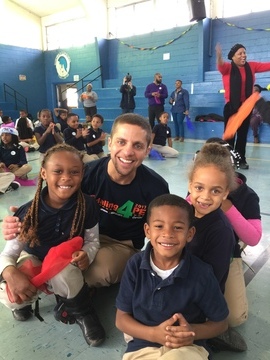
Additional OPEN Development Council members include Kline, Professor of Physical Education Diane Craft, and Hart’s wife, Andrea Hart, nutritionist for Auxiliary Services Corporation. The trainers’ reach extends beyond in-person meetings. Miller hosts a podcast with Mike Martinez, a SUNY Brockport graduate and a fellow teacher at Democracy Prep in New York City, the OPEN Forum podcast. Since launching in late 2017, the podcast has already reached more than 2,000 subscribers and offers more creative ideas for physical educators. OPEN also published PhysEd Magazine and the OPEN Blog. SUNY Cortland students and faculty are making the most of the partnership with OPEN. Recently retired professor Eric Malmberg, an expert in the field of gymnastics, helped author the upcoming gymnastics curriculum module. Baert and Craft have lent their knowledge in early childhood physical education. Two graduate students and two undergraduate students are also working with Hart in the AMP Lab. Of course, many faculty members are introducing some of OPEN’s main concepts in their classes, exposing students to new ideas. “It’s an ideal partnership and that’s really the best way to look at it,” Foley said. “It allows us as faculty to contribute curricular content to OPEN. The OPEN project can pick our brains and seek our input.” For Aaron Hart, the in-person visits are the most meaningful experiences he’s had through OPEN. In December 2017, he and a team of trainers visited rural public schools outside of Baton Rouge, La. Partnering with EatMoveGrow, a federally funded grant program that aims to close health gaps in underserved elementary schools across Louisiana, OPEN trainers reached educators who desperately needed their help. “Many of the physical educators we worked with, they felt as if they were completely forgotten and alone,” Hart said. “We walked into a situation where one of the physical education teachers had just bought sponges on clearance from Dollar General to use for beanbags. That was the equipment he had.” Not only did these teachers have access to OPEN’s vast array of free curricula, they received essential equipment packs. For some of the veteran teachers, it was the first new equipment that they had ever received. “You would’ve thought we were bringing them brand-new cars,” Hart said of teachers bursting into tears upon claiming the gifts. Most of all, OPEN’s expert trainers are now familiar faces. They are a mere text, email or phone call away from the teachers in Louisiana. Hart hopes to continue to build those links across the country in keeping with OPEN’s simple mission: teachers helping teachers. “For the teachers in Louisiana to interact with these high-caliber teachers, it opened their eyes a little bit to what’s possible,” Hart said. “A lot of those teachers have reached out and communicated with our trainers asking for advice. They no longer feel alone. That’s the important piece. They no longer feel alone.” Many physical education teachers are able to travel to professional development conferences to learn how to be better teachers. Others, however, either can’t afford registration costs or can’t travel long distances to these events. So OPEN goes to them. A partnership with the Society of Health and Physical Educators (SHAPE) Colorado, provided a free professional development session in a rural and remote part of the state. “We were hoping to have 20 teachers show up because of the rural nature, but the two sessions averaged 70 teachers at each event,” Hart said. “It speaks volumes to the dedication and passion of physical educators for what we do. Some just need the resources to do it.” 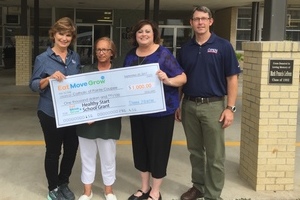
A similar free professional development event in Ashville, N.C., drew 120 teachers on a Sunday afternoon in the summer. OPEN will host another free event on March 18 in Nashville, Tenn., prior to the SHAPE America national convention. OPEN has partnered with a number of national and state-level organizations, including The Cooper Institute, a non-profit that is dedicated to promoting life-long health and wellness through research and education. In April, OPEN will release a curriculum module that will help teachers improve students’ FitnessGram scores. FitnessGram is a non-competitive assessment that is used annually in tens of thousands of schools across the country, reaching more than 10 million children. Recently, OPEN became a partner with Active Schools, an organization that promotes 60 minutes of physical activity each day in U.S. public schools. Hart sits on Active School’s strategic advisory council and is working with Executive Director Charlene Burgeson. “That’s been an important development for us because our entire mission is helping teachers, which in turn helps students,” Hart said. “The success of the organization has gotten national attention and we’re building on that constantly.” OPEN dipped into the SUNY Cortland alumni base again in its relationship with the Virginia Department of Education. Vanessa Wigand ’77, specialist in health, physical education and driver education for the Virginia Department of Education, has worked with OPEN and the AMP Lab to develop custom curricula modules that are posted to the Health Smart Virginia website. Virginia’s educational standards are more rigorous than the national standards, so OPEN’s modifiable open source lesson plans have been a hit with the state’s physical education teachers. OPEN, the AMP Lab and the Virginia Department of Education have agreed to work together through the 2019-20 school year, which locks in funding for graduate student assistants. Curriculum modules from OPEN have been downloaded nearly 1 million times. Hart expects to hit that mark sometime in the fall. The teachers using the free lessons plans are not limited to the United States. “When you think of the breadth of this project, this impacts a lot of people,” Foley said. “We have people downloading content from other countries. This has a potential to be global in impact.” Hart hopes that SUNY Cortland’s large base of active alumni in physical education will experiment with OPEN lesson plans in their classrooms and help spread the word about the program. If teachers continue to help teachers, students across America will better learn to develop healthy lifestyles. “I never thought we’d be over 30,000 teachers at this point,” Hart said. “If we were over 10,000, I thought we’d be a success. We’re growing at more than 1,000 members a month. It’s really been a blessing.” NFL Coach and Pianist to “Perform” Lecture and Concert03/20/2018Imagine a room of NFL offensive linemen. The taped-up fingers. The knee braces. Guys who can bench-press a house. And into that room walks Paul Alexander ’82, who wants to talk about his recent piano lesson. Alexander, who coaches the Dallas Cowboys’ offensive line, will return to his alma mater on Tuesday, March 27 to present “Perform,” a dual lecture and concert aimed at athletes, musicians, teachers and coaches. The event begins at 7 p.m. in Old Main Brown Auditorium. The worlds of music and sports have many parallels. Alexander has spent a lifetime studying these links, starting during his time as a physical education major and music minor, all while playing as an Academic All-American offensive lineman on SUNY Cortland’s football team. He hopes his message resonates with students from all academic backgrounds and unlocks some of the secrets of how to perform well, be it on the athletic field, the auditorium stage or in the classroom. “It’s about everything from slow-motion learning for developing strong neural pathways to learning total body relaxation; not only to exert force in sports, but also to create beautiful music,” Alexander said. “They are one in the same. There are a number of those parallels that I’m going to talk about.” 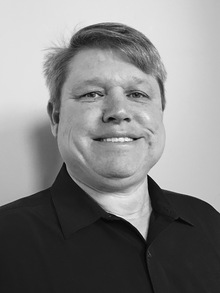
Alexander grew up playing guitar and singing in the school choir in his hometown of Spencerport, N.Y. Following his time at SUNY Cortland, Alexander earned a master’s degree in exercise physiology at Penn State while he served as graduate assistant coach with the Nittany Lions. He later coached at the University of Michigan and Central Michigan before taking a job as an assistant coach for the New York Jets in 1992. Alexander joined the Cincinnati Bengals in 1994 — guiding players such as Andrew Whitworth and Willie Anderson to multiple Pro Bowl appearances — and coached there through the end of the 2017 season. At home, Alexander shares his passion for music with his wife, Kathy, and his three daughters: Mary Beth, Carolyn and Emily. In fact, his interest in the piano began when Carolyn started taking lessons as a fourth-grader in 2008. Her teacher, Albert Mühlböck, was born and trained in Vienna, Austria before he landed as a doctoral candidate at the University of Cincinnati’s College Conservatory of Music. Mühlböck was an intimidating figure to a 10-year-old girl, so Alexander tagged along for the first few lessons. He became hooked. How did Mühlböck hit 30,000 correct notes in a row? Where did he develop that focus? And how, Alexander wondered, could he translate those mental traits to his offensive linemen? So he started talking about his own experiences of learning to play the piano with his players. It all came back to the idea of performing in front of an audience, be it a silent auditorium or a stadium full of 70,000 screaming fans. What separates the best performers from the pack is their ability to concentrate on the task at hand despite the pressure. “I’ve told them before, if you’re playing high-level piano music in a concert setting, you have to focus on nothing but the music for six minutes straight,” Alexander said. “If your mind wanders at all, you’ll make a mistake. It is so hard to focus on one thought for that long.” “That’s what we tell them in sports, to focus. But what does focus mean?” he continued. “It’s about eliminating all the other thoughts except the one thought that’s in your head. And that gets you to perform. I would say that the focus to play six minutes of high-level music is more difficult than the focus needed on any sports play.” Alexander summarized his philosophy in his 2011 book, Perform: NFL Coach Trains With a Concert Pianist…a Journey for Athletes, Musicians, Coaches and Teachers. He has also recorded an album, “Suite Dreams from Dad,” which he has dedicated to his daughters. As for the person who inspired Alexander’s journey, his daughter Carolyn, well, she is currently a junior at the Berklee College of Music in Boston, Mass. 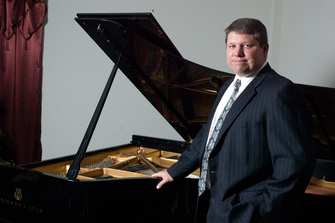
Musical talent is more common among NFL coaches than the average fan may realize. Marc Colombo, an assistant coach with the Cowboys and one of Alexander’s co-workers, sings and plays guitar in the metal band Free Reign. John Benton, the San Francisco 49ers’ offensive line coach, is an accomplished guitar player and Bob Wylie, the offensive line coach for the Cleveland Browns, plays the drums. Baltimore Ravens kicker Justin Tucker is a classically-trained opera singer. Alexander hopes to further bridge the gap between music and sports during “Perform.” He will partner with the SUNY Cortland College-Community Orchestra to illustrate his discoveries with musical excerpts. The event will conclude with Alexander playing a movement of a Mozart piano concerto with the orchestra. "Getting to work with Paul is exciting for everyone involved,” said Ubaldo Dante Valli, conductor of the College-Community Orchestra. “His insights into how we learn and perform are incredibly useful. Anyone, not just musicians and athletes, can benefit from his ideas. They have certainly helped me." Alexander plays public events, primarily fundraisers, as his schedule allows. He conducted the Hamilton-Fairfield Symphony Orchestra, now known as the Butler Philharmonic Orchestra, in 2016. In 2009, Alexander brought Mühlböck to SUNY Cortland for a free concert in the Dowd Fine Arts Center. Alexander lectured on the connections between sports and music during that visit. Now, he’ll sit behind the piano himself. The event is sponsored by the President’s Office, the SUNY Cortland Alumni Association and the Campus Artist and Lecture Series (CALS). Alexander has had a remarkably successful career as an NFL coach. He’s enjoyed his personal musical journey of the last 10 years, especially learning to play the piano at a high level. Most of all, Alexander thrives in his roles as teacher and coach. He wants to enlighten both athletes and musicians using the skills he learned first at SUNY Cortland. “The training I got at Cortland in phys ed has really allowed me to be a successful NFL coach,” he said. “There are so few coaches in the NFL, a minority, who have trained as teachers or coaches. Most of them are former players that became coaches. “Quite honestly, I think one of the reasons I was able to stay with the Bengals for 23 years and get the Cowboys job was because I learned how to teach. I learned how to analyze and prepare. I think that has set me apart from others and I learned that at Cortland. I’m very thankful for the experiences I had there.” Capture the MomentIvy Stevens-Gupta, right, an award-winning contemporary artist from Ithaca, N.Y., demonstrates “Applying Color Theory Principles” to Rebecca Cornell, library media specialist at McGraw Elementary School, during a workshop at SUNY Cortland’s “Connect, Create, Innovate 2018.” The color therapist, lecturer and marketing consultant teaches that color can be a form of communication in art and in healing. Nearly two dozen workshops were held during the all-day event for teachers and school professionals. Organized by the School of Education and co-hosted by TST BOCES, the conference was held in Corey Union on March 16. In Other NewsHelp Us Meet The Cortland ChallengeAll members of the SUNY Cortland community have an opportunity to help the College improve educational, cultural and athletic programs, further develop top-quality faculty and staff and open more research and applied learning options for students by participating in SUNY Cortland’s annual 24-hour challenge on Wednesday, March 21. The #CortlandChallenge fundraising event starts at the stroke of midnight as Tuesday becomes Wednesday, offering students a chance to join hundreds of other SUNY Cortland alumni, faculty, staff, parents and friends to donate online to give back to the College. The goal of the event is to get as many participants as possible, and several generous alumni have set up thousands of dollars in matching gifts that depend on the rest of the community hitting a series of goals. A contribution of any size, designated to a campus cause or interest area of your choosing, will count toward the first targeted number of donors and unlock the challenge gift. A new goal will then be set for the next matching gift. The Cortland Fund is looking to build on the success of last year’s challenge, when SUNY Cortland received $117,073.70 from 601 individual donors. “Challenge days are exciting because it is a rare opportunity for an individual donor to see just how a gift of any size can have impact as part of a greater community of donors,” said Jason Pomeroy, director of The Cortland Fund. “It is also an opportunity for the greater SUNY Cortland community to come together online and across social media to reminisce about their time at Cortland and show their Red Dragon Pride.” There are actually two types of challenges that will be going on throughout the day. The first is the overall challenge, in which every unique donor during the 24 hours of March 21 will count toward the totals needed to realize $11,000 in matching gifts pledged by Victor M. Rumore II '84 and Michael J. Cappeto ’71, M ’73. The second type of challenge is the Athletics Challenge. Mike Vela ’88 has put up $10,000 to create a little competition among our Red Dragon athletic alumni. Each team has a unique donor goal to meet during the day and prize money will be given to the teams that meet those goals. Please go to the Athletics Challenge page to learn more about the Athletics Challenge and about Vela, our challenge donor. Participating in the #CortlandChallenge is easy! Simply login to Red Dragon Network on March 21, select the amount you would like to give, select the cause you want your gift to go towards, provide some basic information about yourself, and hit next. Not comfortable paying online? The Cortland Fund offers a list of alternate payment options on the Red Dragon Network website. You can either mail your contribution in, call it in, or bring it in in person to any one of the four locations listed. Those wishing to keep their gift anonymous are more than welcome to do so. Last year’s successful challenge means the bar has been set pretty high for 2018. Monica Bedford Voldstad ’72, M ’77 and Michael ’81 and Catherine Suarez Leeolou ’81 last year offered challenge donations when numbers surpassed the initial goal of 321 donors and reached 500 generous gift-givers. In addition, Louise M. Conley gave $10,000 on behalf of reunion celebrants. Look for more details and updates via email, social media and other channels. To help spread the word about this opportunity, share the link, RedDragonNetwork.org/challenge, using #CortlandChallenge on social media outlets such as Twitter, Instagram and Facebook. For additional information, feel free to contact Jason Pomeroy, director of The Cortland Fund, at 607-753-5578 or by email. Prepared by Communications Office writing intern Hannah Bistocchi Ending Campus Sexual Violence is TopicDuring his frequent presentations to college students, Keith Edwards, a national speaker and educator on sexual violence prevention, often spells out for them the different forms of sexual violence, which includes sexual harassment, sexual assault and rape. Then he asks the audience how many people know someone who has experienced one of the situations he’d described. “Again and again, on campuses across the United States and Canada, 75 percent of college students consistently raise their hand and say they know someone who has experienced sexual violence,” Edwards said. Edwards is convinced that one aspect of reducing this sad statistic and its harmful lasting legacy is to prepare everyone to act decisively to reduce the chance of an attack from happening in the first place. He also thinks it’s critical for all people in a community to help an individual who reported being assaulted to cope with and recover from the crisis. Edwards will discuss what members of the campus community can do to support fellow students and others on Wednesday, April 4. His talk, “Ending Rape: A Social Change Approach to Sexual Violence,” begins at 7 p.m. in the Corey Union Function Room. It is free and open to the campus community. The presentation will serve as the keynote address to the College’s planned “SUNY Cortland It’s On Us Spring Week of Action” from April 2 to April 6. Sponsored annually by the institution’s It’s On Us Action Team and the student organization Students Active for Ending Rape (SAFER), the week will include a Green Dot bystander intervention egg hunt, t-shirt making, two panel discussions and an additional speaker from the New York State Police. Details will be announced online and in the April 3 Bulletin. Edwards’ scholarship interests include diversity and social justice education and college men’s issues from a feminist and social justice perspective. He is a national leader in social justice education, having founded and served as chair for the American College Personnel Association (ACPA) — College Student Educators International’s Commission for Social Justice Educators. Over the past 15 years, Edwards has spoken and consulted at more than 150 colleges and universities, presented more than 150 programs at national conferences and written more than 15 articles or book chapters on sexual violence prevention, men’s identity and social justice education. His research, writing and speaking have received national awards and recognition. Edwards recently co-chaired ACPA’s Presidential Task Force on Sexual Violence Prevention in Higher Education and co-edited the publication Beyond Compliance: Addressing Sexual Violence in Higher Education. He is currently co-editing a book on sexual violence prevention and response in higher education. His TEDx Talk on “Ending Rape” has been viewed around the world. Edwards directed Campus Life at Macalester College in St. Paul, Minn., from 2007 to 2015 and was involved in sexual violence prevention and Title IX investigations and adjudication. An affiliate faculty member in the Leadership in Student Affairs program at the University of St. Thomas, he taught graduate courses on diversity and social justice in higher education for eight years. A certified executive and leadership coach for individuals who are looking to move forward in any aspect of their life, Edwards’ coaching approach is grounded in positive psychology research on what works, Zen practices and approaches to help individuals “get out of their own way.” He looks at it all through a social justice lens. Edwards received a Ph.D. from the College Student Personnel Administration program at the University of Maryland, where he completed his dissertation “Putting my Man Face On: A Grounded Theory of College Men’s Gender Identity Development.” His work was recognized as Dissertation of the Year by ACPA — College Student Educators International in 2008. Edwards has a B.A. in social studies along with an education minor and teaching license from Hamline University in St. Paul, Minn., and an M.S. in student affairs in higher education from Colorado State University. The talk is also part of the College’s year-long Wellness Wednesday series of events, organized by Health Promotion and the Student Development Center to enhance wellbeing in the campus community. In addition to the campus “Week of Action,” several related events will take place later in April, closely following when the national It’s On Us Week of Action takes place, from April 1 to 7. These will include the College’s “Take Back the Night” march on Wednesday, April 11. A “Yards for Yeardley/Around the World for Yeardley” event, honoring individuals who have reported sexual violence or relationship abuse, will happen on Sunday, April 15. The walk, run and (wheelchair) roll event is co-sponsored with the campus by the One Love Foundation and State University of New York. On Monday evening, April 16, SAFER is hosting a discussion led by Jena Curtis, associate professor of health, on “Healthy Relationships and Consent.” Two award-winning films by documentary filmmaker Jessica Congdon will be screened, “The Mask You Live In” on Monday, April 16, and “Miss Representation,” on Tuesday, April 17. Congdon will discuss her work Friday, April 20. The sponsors for the film series and talk will include the Cultural and Intellectual Climate Committee (CICC), English Department, Title IX office, and Women’s, Gender and Sexuality Studies. Details for both the “Yards for Yeardley” and Jessica Congdon-related events will be in the next Bulletin. For more information, contact Nan Pasquarello, the College’s Title IX coordinator and It’s On Us Action Team co-chair, at 607-753-4550 or visit the Title IX website. Buffalo Bills Staff to Speak at SUNY Cortland’s Sports Medicine SymposiumIn the modern NFL, one of the biggest keys to success is keeping players healthy and in peak physical shape. The people who do just that for the Buffalo Bills will share their knowledge and experience with SUNY Cortland students, alumni and area professionals on Monday, March 26 at the College's annual, one-day Sports Medicine Symposium. Members of the Bills' strength and conditioning and athletic training staffs will offer a variety of presentations during the event, which runs from 9 a.m. to 2:30 p.m. in Corey Union Function Room. The cost for preregistered attendees is $10 for students, $30 for alumni and $35 for professionals in the field. Deadline for preregistration is Sunday, March 25. Attendees may register on-site beginning at 8:30 a.m. on March 26. Day-of registration costs $15 for students, $30 for alumni and $40 for professionals. A keynote address by Hal Luther, assistant strength and conditioning coach for the Bills, will be free and open to the public. “The speakers are going to discuss topics all across the board, from exercise science to fitness development and sport management,” said Assistant Athletic Trainer Amanda Williams, chair of the Sports Medicine Symposium. “There will be time at the end of each talk, about 10 minutes, for questions and answers. It will be beneficial for students to come.” 
This is the seventh annual Sports Medicine Symposium hosted by SUNY Cortland, which was recognized for the nation's 10th best undergraduate program for sports medicine careers by CollegeChoice.net. Students in Cortland's Kinesiology Department do well in the classroom and beyond. A recent study of athletic training graduates from 2014 to 2017 found that 96 percent graduated on time and 90 percent of those graduates were employed as athletic trainers or were employed as athletic trainers while pursuing an additional degree. Will Greenberg, an assistant strength and conditioning coach for the Bills, will discuss “Psychology of Nutrition: ‘Caught in the Act’” from 9 a.m. until 10 a.m. He previously served as head strength and conditioning coach at Southern Utah University and worked in various capacities at the United States Military Academy, Appalachian State University and the University of Florida. Greenberg will address understanding the mental aspect of nutrition, implementing life-changing nutritional habits and the mental challenges associated with them. Denny Kellington, an assistant athletic trainer for the Bills, will deliver his talk, “Athletic Training Strategies at the Collegiate and Professional Levels,” from 10 a.m. to 11 a.m. Kellington was previously the head athletic trainer for football and an adjunct professor at Syracuse University and has worked for Ohio State University and the Denver Broncos. He will address common recovery techniques and their role in athletic training as well as assessing the relationship between athletic trainers and strength and conditioning coaches. Kellington also will explore the connections between sports science and athletic training. 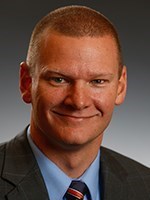
Mark Loecher, a strength and conditioning assistant for the Bills, will follow from 11 a.m. to noon with his talk, “Sports Sciences and their Application.” Loecher received bachelor’s and master’s degrees in exercise physiology from Mercyhurst (Pa.) University, where he was a member of its Division I ice hockey team. After graduation, he served as strength and conditioning coach for Mercyhurst’s men’s ice hockey team and also has experience working with the Buffalo Sabres of the NHL and the Rochester Americans of the AHL. 
The learning objectives of Loecher’s lecture include the sports science concepts currently being used by the Buffalo Bills, understanding sports science technology such as geographic information systems (GPS) tracking and heart rate monitoring and how to use sports science concepts to establish training camp and in-season practice schedules. The keynote speaker, Bills assistant strength and conditioning coach Hal Luther, is scheduled from 1 to 2:30 p.m. following a lunch break. Luther’s wife, Kristen Luther, worked as an athletic trainer and as the director of strength and conditioning at SUNY Cortland from 2005 to 2013. 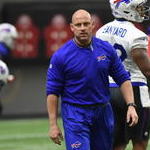
Hal Luther worked as the director of strength and conditioning at Syracuse University and was the assistant strength and conditioning coach at North Carolina University before he landed in Buffalo. He will open his lecture, “NFL Strength and Conditioning: ‘A View from the Inside,” with the story of his personal journey as a student at Springfield (Mass.) College and the University of Wisconsin-La Crosse to his current position with the Bills. He also will speak about how to identify training cycles for athletes in the calendar year and will discuss understanding training strategies for athletes in all phases of their careers, taking into account their age, injury history and position played. Finally, he will explain how a team's athletic trainers, strength and conditioning coaches and the coaching staffs of teams can achieve successful communication strategies. The cost of the symposium includes lunch. Those interested may register online. Contact Amanda Williams at 607-753-5944. The event is sponsored by SUNY Cortland’s Athletic Training program, the Kinesiology Department, the Bert Mandelbaum ’75, M.D. Sports Medicine Lecture Grant, a Cortland College Foundation small grant and the Campus Artist and Lecture Series (CALS). Students Plan March Against Gun ViolenceAs soon as Raquel Rodriguez-Asher ’17 heard about the mass shooting at Marjory Stoneman Douglas High School in Parkland, Fla., she knew she wanted to do something to help the victims and their families. “I heard about a kid who was holding doors for his friends, so they could escape, and he was killed,” said Rodriguez-Asher, a graduate community health major from Newburgh, N.Y., who has a bachelor’s degree from SUNY Cortland in the same discipline. “When you’re 15 you worry about the prom and track practice,” said Rodriguez-Asher, who serves as a graduate assistant for SUNY Cortland’s Substance Abuse Prevention and Education Office. “Nobody should have to be worrying about surviving a school shooting when they’re 15.” Still reeling from the news of the massive school shooting that claimed the lives of 14 students and three adults, Rodriguez-Asher decided to do something to show SUNY Cortland’s support for the victims and also help bring more awareness to gun control issues. From this, plans for a SUNY Cortland “March for Our Lives” event were born. Scheduled to take place at 5:30 p.m. on Thursday, March 22, on the steps of Corey Union, the march will be the first in the College’s history. “We are trying to pay our respects to those who lost their lives,” said Rodriguez-Asher. She’ll address the crowd with SUNY Cortland President Erik J. Bitterbaum. 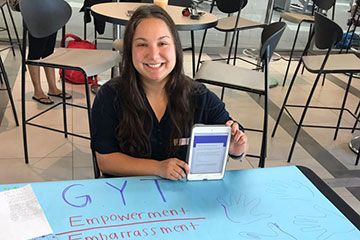
“We need to talk about mental health but also gun policy,” she said. “We can’t ignore these red flags anymore.” A moment of silence will follow the ceremony for those who lost their lives. Participants then will walk a similar route around the campus as the “Take Back the Night” marches. Rodriguez-Asher credits Health Educator Lauren Herman ’12, M ’13 with helping her make this idea a reality. Following the Florida mass shooting, Rodriguez-Asher sent an email to the Student Government Association and Bitterbaum. Encouraged by the positive responses, she brought the event to life in under three days. The entire campus community, including all campus groups and teams, is invited to participate. “I’m really hoping that NYPIRG will get involved,” said Rodriguez-Asher. “Hopefully this gets enough students aware and registered to vote to contribute and help remedy this issue.” Rodriguez-Asher believes that what Florida youth are trying to do will ignite nationwide change on gun control. “When Vietnam was happening, the major protestors were young kids trying to make a difference,” said Rodriguez-Asher. “These kids in Florida, and this generation, have the potential to make changes in our legislation in gun policies and school safety policies.” Individuals with questions or who wish to help with the event may contact Rodriguez-Asher or stop by her office, located in Vanhoesen Hall, Room B-1, from 8 a.m. to 4:30 p.m. Monday, Wednesday or Friday. Prepared by Communications Office writing intern Hannah Bistocchi Grad’s Ability Translates into Success with MLBYou won’t find his name in any box scores on Opening Day. But rest assured that SUNY Cortland graduate Javier Román M ’14 has an important job with Major League Baseball (MLB). The former international sport management major serves as Spanish social media coordinator for MLB’s official Las Mayores accounts, which means he works on the three-person team that translates baseball news and highlights for Spanish-speaking audiences on Instagram, Facebook and Twitter. It’s a position that has introduced Román to future hall of famers and given him lifelong memories created across the globe. When the first pitch of the MLB season is thrown next week, up to one-third of rosters are expected to be occupied by Latinos. Last year’s All-Star Game featured 23 players of Latino descent. Names such as Carlos Correa, Francisco Lindor and Gary Sánchez represent some of the sport’s brightest young stars. So, in a broader sense, Román provides a vital communications bridge — one that he has worked hard himself to build. 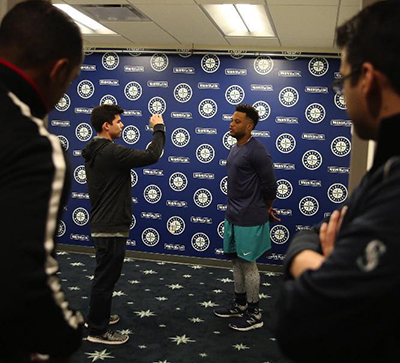
“Being part of the minority in the sports industry can be tough sometimes, but that’s what makes you work harder,” said Román, 27, who grew up in Arecibo, Puerto Rico, and now lives in Phoenix, Ariz. “English was not my first language and that was very difficult too. “But eventually, I found that being bilingual could be one of my advantages.” Back in 2013, Román’s arrival as a SUNY Cortland graduate student introduced him to new experiences — not just a change in climate, but exposure to new people and ideas. Through the College’s International Programs Office, he met students who represented many different nationalities. He recounted memories of traveling across New York state and Canada for his classes, learning about the Winter Olympics in Lake Placid, N.Y., and the Pan-American Games in Toronto. “I learned so much ... not just about sports, but about different cultures,” said Román, who earned a bachelor’s degree from the University of Puerto Rico, Arecibo and chose SUNY Cortland’s Sport Management Department for its reputation. Professor Jordan Kobritz remembers meeting Román in an international sport marketing course, where the pair bonded over a love for baseball. Román, however, struggled with the English language, especially his professor’s master’s-level writing expectations. “Javy accepted every challenge,” said Kobritz, the former owner of two minor league baseball teams. “He always wanted to get better. He was determined to show up, work hard and do well. I’ll never forget that about him.” Slowly, Román’s English language skills improved and, in 2014, he saw the value of being bilingual while completing his graduate internship with the Perth Heat of the Australian Baseball League. Marketing, community relations and merchandise sales were part of his everyday work. He also was exposed to the typical do-everything minor league baseball experience that molds many young sports professionals. 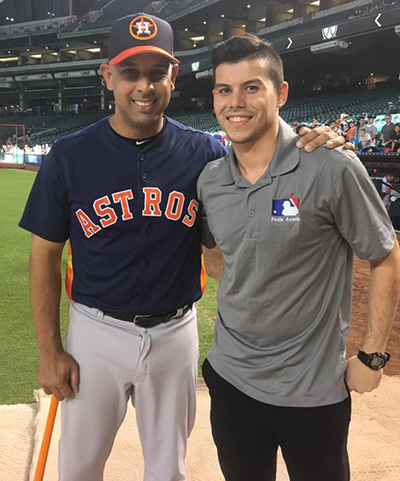
“I dressed up as the mascot, cleaned the stadium and anything else they needed at the time,” Román said. Perhaps his most important duty in Australia was communicating with other Spanish-speaking people — both fans and players from countries such as Venezuela and Cuba. “I think it made them more comfortable being able to talk to someone who knew Spanish,” Román said. After sight-seeing across Australia, he moved back to Puerto Rico in 2015 and worked for a short time in the hospitality industry. In October 2015, he was named promotions coordinator for the Criollos de Caguas, a member of the four-team Puerto Rican Professional Baseball League that competes during the winter. Then, he took a chance and pursued a job more than 3,000 miles away, with MLB’s Arizona Diamondbacks as their Hispanic market intern. “We tell our students: now is your time to see the world and spread your wings,” Kobritz said. “Javy is proof of that.” In Arizona, Román’s bilingual ability and sport management experience again proved valuable for translating web content into Spanish as well as working with corporate partners trying to reach Latino fans. His part-time work became a full-time opportunity with MLB’s league-wide Las Mayores platforms in March 2016. The experience so far has been nothing short of a dream. Román works primarily in Phoenix during the regular season while keeping his finger on the pulse of the sport and translating highlights for a Spanish-speaking audience. He also assists 10 teams with their online promotions and marketing efforts, including the Boston Red Sox, Chicago Cubs and New York Yankees. 
He has traveled to marquee events, from the 2017 World Baseball Classic to the National League Divisional Series between the Chicago Cubs and Washington Nationals in October. Most recently, during spring training, he trekked across the state of Arizona to document a tour of several Cactus League facilities. Román is trusted to lead interviews during his travels with popular Latino players past and present. Those names have included Carlos Beltrán and Edgar Martínez, who both are childhood heroes from his native Puerto Rico. While detailing his favorite work-related baseball memories, Román recalled a Facebook Live interview he recorded with Kansas City Royals star Salvador Pérez, another one of his all-time favorite players. “(Pérez) starts talking on camera and says ‘Hey, this is Salvador Pérez and I’m here with my friend Javy Román,’” said Román. “I remember thinking, ‘Are you serious? Salvador Pérez just said my name.’” The experience left Román star struck. It also validated several years of hard work. Speaking English still does not come easy for him. But the skill he improved at SUNY Cortland continues to motivate Román and ultimately set him apart. “Javy’s success is a credit to how hard he has worked and what he was willing to do to get there,” Kobritz said. “He’s a shining example of what students can learn here and carry with them into the world.” Lecture Explores Termite Mushroom FarmsFrom bees drip honey. From birds blossom fruit orchards. From termites spring up — mushrooms. Yes, it’s time to make that nasty pest, who’s busy right now turning someone’s house to brown mush, pause and take a bow, at least in parts of Africa. There, many species cultivate on their nests fungi that will eventually end up in a chef’s cookpot. Dawit Abate, a Fulbright Visiting Fellow and professor of mycology at University of Ethiopia, Addis Ababa, will visit SUNY Cortland to explain the unique behavior on Thursday, March 22. Abate, from the University of Ethiopia’s Department of Microbial and Cellular Biology, will discuss mushrooms that have been farmed by termites for thousands of years in Africa in a talk titled “Mushrooms (Termitomyces) Farmed by Termites in Africa: Diversity, Utilization, Ethnomycology.” 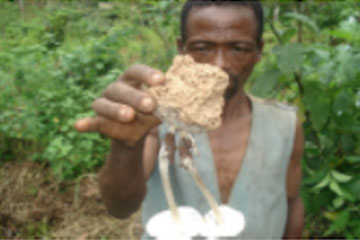
Abate will showcase their spectacular castle-like mounds where the farming occurs, and how humans have adapted to using the mushrooms created through this relationship between insects and fungi, starting at 6 p.m. in Bowers Hall, Room 1129. The event, which is free and open to the public, is hosted by the College’s Biological Sciences Department and Biology Club with support from the President’s Office, International Programs Office and the Clark Center for Global Engagement. “We have none of these kinds of termites cultivating mushrooms in the New World, they are only Old World,” said SUNY Cortland Distinguished Professor Emeritus Timothy Baroni, a biologist who specializes in mycology (fungi). Baroni is part of a group of researchers investigating a possible New World connection: mysterious insect nests in Colombia where fungi appear to be cultivated. The animal doing the planting and harvesting has yet to show its face, however. Certain species of African termites chew up wood into their huge nests, seed it with fungi, ventilate their gardens, and feed their families off of the outgrowth. The maligned insect probably has farmed mushrooms for tens of thousands of years, much longer than humans have cultivated their food, according to Baroni. “These mushrooms appear to be tightly intertwined with the evolution of the insect,” he said of the African farming termites. “We might be able to learn from them. They’ve been successful for a long time.” Abate is currently a Fulbright Visiting Fellow at the Institute for Food and Agricultural Sciences, University of Florida, where he is working on methods for controlling fungal diseases in cultivated mushroom crops. He has previously served as a program officer in the United Nations Office for Project Services in Windhoek, Namibia, from 2001 to 2003. Abate also has served as dean of the Faculty of Life Science at Addis Ababa University. A former president of the Biological Society of Ethiopia, Abate is a member of the African Mycological Association, the World Society for Mushroom Biology and Mushroom Products, the British Mycological Society, and the International Society for the Plant Protection Sciences. Born in Gojam, Ethiopia, he earned a Ph.D. in mycology from University of Kaiserslautern, Germany. Abate also has a B.A. in biology and a M.S. in botany/mycology from Addis Ababa University, Addis Ababa. His very broad research interests include fungal ecology and diversity; fermentation microbiology; fungal physiology and metabolism; bioactive microbial products; plant-fungus interaction; forest mycology/plant pathology; mushroom diversity; and mushroom cultivation. From SUNY Cortland to the SmithsonianLast spring, when it came time for SUNY Cortland history major Claire Leggett to start thinking about summer work, she applied to some of the nation’s most competitive internships at some of the world’s most famous showplaces: The Metropolitan Museum of Art and the Guggenheim Museum in New York City, the Albright-Knox Art Gallery in Buffalo and several Smithsonian locations in Washington, D.C. Her shoot-for-the-stars approach caused Leggett’s biggest inspiration and supporter — her mom — to pause. “I think she was nervous that I didn’t have a back-up plan,” said Leggett, a senior who grew up in East Aurora, N.Y. “I just knew that I wanted to go for it.” Ultimately, that leap of faith paid off in the form of an 11-week internship at the Smithsonian National Portrait Gallery. Leggett described her Washington, D.C. experience as life-changing — the latest pivot in a remarkable undergraduate career that started with teaching aspirations and will end with impressive graduate school options for art administration. For Leggett, a deep appreciation for artwork and museums runs in her blood. Her mother Barbara served as the longtime executive director of Explore & More Children’s Museum in Buffalo. Growing up, family vacations were highlighted by museum visits. Leggett still can recall the burst of emotion she felt as a high school sophomore visiting the Prado Museum in Madrid for the first time, when she viewed Francisco Goya’s “The Third of May 1808” in person after seeing photos and learning about it in school. Once at SUNY Cortland, it didn’t take her long to make a name for herself. Award-winning and insightful research served as her ticket to conferences across the country, from New Orleans to North Carolina. Her most recent work, “From Ballerinas to Murderers: How Physiognomy and Phrenology Impacted Art from 1800 to Present,” studies how artists used the two pseudosciences to depict racial and classist stereotypes in their artwork. 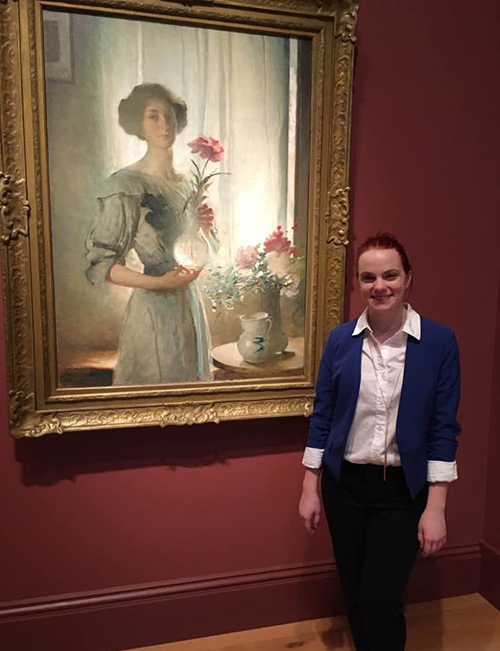
That paper recently was accepted at the National Conference on Undergraduate Research (NCUR) at Central Oklahoma University, although Leggett will opt instead to present it closer to home, at SUNY Cortland’s Transformations: A Student Research and Creativity Conference on Friday, April 13, and the SUNY Undergraduate Research Conference hosted at SUNY Oneonta on Friday, April 20. Her success across four years at the College was due in large part to an open-minded attitude and a tireless work ethic, regardless of the pursuit. “I couldn’t have picked a better school for undergrad,” said Leggett, who was accepted into every graduate program to which she applied: American, Boston, George Mason, Georgetown and Northeastern universities as well as the School of the Art Institute of Chicago. “I didn’t want to go somewhere where a professor couldn’t be bothered to know my name. “Really, being (at SUNY Cortland) and working one on one consistently with professors is what changed everything.” That doesn’t mean the rewards came without contemplation. From the time she was a teenager, Leggett laid out a straightforward plan in her head: go to college and enjoy a career as a middle or high school social studies teacher. She liked Cortland’s size and reputation in teacher education. But in her first year at the College, she took HIS 290: Historical Methods with Professor Gigi Peterson and saw even more opportunity in the discipline. “Everything changed for me,” said Leggett, whose research for that class focused on the racial integration of Buffalo’s public schools. “It really made me think about everything I could do with history.” Peterson described Leggett as a poster child for the type of work a history major can do outside of teaching and, more importantly, explaining why exposure to the liberal arts is crucial to the college experience. By the time she graduates in May, Leggett will have completed minors in anthropology, art history and political science — a strong yet unique foundation that supports her passion. “Claire’s path is an excellent example of why students need flexibility in their schedules, especially in their earlier years,” said Peterson, who traveled with Leggett to the 2016 NCUR event in Asheville, N.C. “She made a pretty remarkable switch, and it was because of her energy, her intellectual curiosity and her willingness to take advantage of everything our campus has to offer.” Leggett’s junior and senior years brought a series of those valuable experiences, each building on the one before it. She was among the first three SUNY Cortland students to pursue an internship in public history as a junior. That program, under the direction of Assistant Professor Evan Faulkenbury, introduces history students to an applicable side of the discipline that relies on community engagement. Classmates worked at the 1890 House and the Cortland Rural Cemetery. Fittingly, Leggett offered her talents and love for the arts to the nearby Cortland Repertory Theatre. That internship was the catalyst for her summer at the Smithsonian National Portrait Gallery, which eventually revealed a future in art administration. Leggett also worked at the Museum of the Earth in Ithaca this past fall. By coincidence, she discovered that one of her supervisors there once worked with her mother at the children’s museum in Buffalo. “It was another one of those reminders that I was in the right place at the right time,” Leggett said. She often thinks back to the summer between her sophomore and junior years, when she served as an orientation assistant entrusted to help incoming students transition to SUNY Cortland. Undecided futures and changing majors were among their most common fears. Leggett herself was in the process of shifting her own plans, from teaching to an unknown application of history. “I told them: ‘Look, I’m right there with you. I changed my mind about my major, and you’re allowed to do that,’” Leggett said. “They were thankful that they weren’t alone, and so was I.” She maintains that a major constant along her path to self-discovery has been supportive faculty members across several departments at the College. They include Peterson, Professor Girish Bhat and Associate Professor Kevin Sheets in history; Professor Kathryn Kramer and Lecturer Allison DeDominick in art and art history; and Professor Sharon Steadman in sociology/anthropology. “I noted in one of Claire’s letters of recommendation for graduate school that I’ve been teaching at the college level for longer than she’s been alive, and I’ve had the chance to work with some outstanding students,” Peterson said. “She certainly stands out within that small group at the top.” Leggett was reminded of that support in early February, on her birthday. She was awaiting word on her application to Boston University, one of her top graduate school choices, but she wasn’t carrying her laptop to classes. So she stopped in the History Department’s office area in Old Main to check her email. When she read the good news on the computer screen, Leggett broke down in tears. Several faculty members ran out of their offices to be among the first people to hug and congratulate her. “They were all so excited for me, like my success was their success,” she said. “That’s just a great environment to be in.” SUNY Cortland’s Pollinator Grade? Bee PlusSUNY Cortland’s commitment to sustainability extends beyond using 100 percent renewable energy and constructing buildings to the highest green standards. The College also is friendly to its bees. SUNY Cortland was recently renewed as one of 34 Bee Campus USA sites by Bee City USA, a national organization dedicated to raising awareness about natural pollinators, like bees. The College was one of the first in the nation to earn the designation when the program began in 2016. Vassar College in Poughkeepsie is the only other Bee Campus in New York state. The world’s bee population has been in decline, causing great concern because the pollination they make possible is vital to plants’ ability to reproduce. Failing pollination could endanger the planet’s food supply. “Bees are having a tough time, as well as some other pollinator species,” said Beth Klein, campus sustainability coordinator and professor of childhood/early childhood education. “We rely on them to help us get our fruits and vegetables.” SUNY Cortland students can learn about the plight of pollinators next week when Greenflix, the documentary film series sponsored by the College Green Reps, will screen “Vanishing of the Bees.” A free viewing of the film is scheduled for Monday, April 2 at 7 p.m. in Moffett Center, Room 2125. Narrated by actress Ellen Page, the documentary addresses the causes of colony collapse disorder, which is damaging the world’s bee population. To earn the certification, colleges must do much more than raise awareness. They must manage campus environments with landscapes that encourage bee foraging and nesting and recognize the importance of pollination in sustaining agriculture and natural habitats. “It’s an indication of the care, particularly that our grounds folks take, that they’re not doing things that would interfere with pollinator species,” Klein said. “We’re lucky with the support we’ve gotten from (Lecturer) Mike Hough in the Biological Sciences Department in his help in putting native plants in the bioswales.” SUNY Cortland has made hundreds of plantings of at least 26 different native plant species since first receiving Bee Campus USA certification in 2016. Hough has published a guide to local pollinator-friendly plants with a list of local nurseries where members of the community may purchase seeds. Signs that describe native plants and the pollinators they attract have been placed near the educational bioswale next to Bowers Hall. A bioswale is a plant-covered depression that collects storm water runoff and filters pollutants. A least-toxic integrated pest management plan is followed by the College’s Grounds Services crews. It establishes a sustainable approach to managing pests by combining biological, cultural, physical and chemical tools in a way that minimizes economic, health and environmental risks. In recent years, SUNY Cortland has hosted a native plant fair, a workshop on caterpillar gardening and a talk on milkweed pollination to help educate the campus community about pollinator health and habitat. The Biological Sciences Department focused its conservation biology seminar on pollination biology. SUNY Cortland’s Garden Advisory Committee creates and maintains gardens on campus and coordinates the College’s Bee Campus USA activities. An undergraduate student has served as Bee Campus USA’s service-learning intern, and other students have used model urban gardens to research the impacts of organic vegetable gardening. The College detailed its efforts toward protecting and enhancing pollinator habitats in its 2017 annual report. The College is planning more events throughout April as part of Sustainability Month. For more information, contact Klein at 607-753-5682. SUNY Cortland Celebrates Green DaysAs a national leader in sustainability, SUNY Cortland is pretty green all year round. In April, members of the campus community make a concerted effort to draw attention to it as they celebrate a full schedule of Green Days events. And next week, individual students will get recognition — and prizes — for doing environmentally sustainable things as part of their daily routines. From Monday, April 9 through Friday, April 13, a special squad of Green Reps will be on the lookout for people who are refilling water bottles, eating vegetarian meals, riding a community bicycle or doing any other activity aimed at reducing their carbon footprint. Students who are “Caught Being Green” will get a prize from the patrol’s bag of green goodies. But nobody has to wait until next week. SUNY Cortland’s Green Days are going on now. Although the month’s schedule, like the earth itself, is still evolving, below is a preliminary list of sustainability or environmental activities for April. It will be updated online and in the next edition of The Bulletin: Wednesday, April 4 Sandwich Seminar: “Can Owning a Well Influence Environmentalism? A Discussion of Aquifers, Water Usage and Citizenship,” investigates the conservation behavior of private well owners in Kansas, where the intense demands of irrigation have made the availability of groundwater a growing problem. Brock Ternes, visiting professor of sociology/anthropology will present research on owners’ conservation routines and other pro-environmental behaviors, which have implications for sustaining communities in drought-prone regions. The talk is scheduled for 12:30 p.m. in Brockway Hall Jacobus Lounge and is sponsored by Campus Sustainability Coalition and the Sustainability Office. Thursday, April 5 Community Roundtable: Sustainability at SUNY Cortland: Why does the Sierra Club think we are a "Cool School”? A discussion of SUNY Cortland’s consistently high ranking by the nation’s premiere environmental organization, Presented by: Mathew Brubaker, campus energy manager, and Beth Klein, professor, childhood/early childhood education, from 8 to 9 a.m. in the Park Center Hall of Fame Room. Presentation: “Copper! WWI and the War on Labor: From the Butte Disaster to the Bisbee Deportation,” a multimedia account of the 1917 Copper Mine Wars that changed U.S. history, will be presented by storyteller, musician and activist Charlie King at 12:30 p.m. in Old Main Colloquium. A discussion will follow.
Monday, April 9 – Friday, April 13 Contest: “Get Caught Being Green,” a special Green Reps Crew will travel campus looking for students who are exhibiting sustainable practices. “Green” students will receive a prize!
Wednesday, April 11 Sandwich Seminar: Several of SUNY Cortland’s student Green Reps will share “Stories of Sustainable Eating,” an exploration of how they incorporate sustainability into their daily eating habits. They will talk about eating locally sourced foods and describe how being a vegetarian and/or vegan affects them and the environment. Students Abby Borzell, Kiley Stoj, Jeremy Collings and Anna Gorall will present and answer questions. The seminar will be 12:30 p.m. in Brockway Hall Jacobus Lounge and is sponsored by the SUNY Cortland Green Reps, Campus Sustainability Coalition and SUNY Cortland’s Sustainability Office. Lecture: Jut Wynne, a conservation biologist and explorer who has traveled to some of the world’s most remote places, will discuss biodiversity in his presentation: “Bizarre Cave Animals of Southern China.” Wynne will address the threat that agricultural chemicals and heavy-metal pollution poses to animals in the limestone caves of Guangxi Province in Southern China, as well as their impact on the area’s traditional farming communities. The talk is scheduled for 7 p.m. in Sperry Center, Room 106. It is sponsored by the School of Education. Thursday, April 19 Sandwich Seminar: “Getting New York to 50 Percent Renewables by 2030 - What Will It Really Take?” will be presented by Brice Smith, associate professor of physics, and Sameer Hairan, a sustainable energy systems graduate student. They will explore the New York Public Service Commission’s 2016 order that 50 percent of the state's electricity must come from clean, renewable sources by 2030, look at New York state’s energy policy and discuss what it will take to achieve that goal. The seminar is scheduled for noon at Brockway Hall Jacobus Lounge and is sponsored by the Campus Sustainability Coalition and the Sustainability Office. Spring Planting Event: Members of the campus community are invited to help plant SUNY Cortland’s model garden for the season. Model garden intern Jessica Moore will coordinate the establishment of a salsa garden bed, vegetable soup garden bed, herb bed and perennial bed. Planting will be done from noon to 2 p.m. in the community garden boxes between Memorial Library and Cornish Hall. It is sponsored by the SUNY Cortland Garden Advisory Committee.
Tuesday, April 24 Tobacco-Free Awareness Activity: Kick Butts Day is an annual campus cleanup focused on tobacco debris and the celebration of SUNY Cortland’s tobacco-free policy. The event will run from noon to 3 p.m. at the Student Life Center. Sustainable Eating Events: ASC representatives at tables in Neubig Hall from 11 a.m. to 9 p.m. will provide information on how campus food waste is pulped and composted. Earth Week menu items featuring locally and regionally sourced food will be featured at Neubig during the same time period. Tuesday, April 24 – Thursday, April 26 Sustainable Eating Tables: Campus Green Reps will do information outreach about sustainable eating through at tables around campus. Time and location to be determined. Wednesday, April 25 Air Plant Giveaway: Air plants that need little care, but remove carbon dioxide from the atmosphere will be given away for free as part of the week’s Wellness Wednesday programming. Plants and information will be available from noon to 3 p.m. at the Student Life Center. The event is sponsored by SUNY Cortland Health Promotion, SUNY Cortland Student Affairs Sustainability Committee, and SUNY Cortland Green Reps. Thursday, April 26 Alaskan Seafood: Members of the campus community will be invited to sample seafood from Alaska’s sustainably managed fisheries and learn how it’s both healthy for people and good for the environment. Free samples of Pacific Pollack quesadillas outside the main entrance to the Bistro in the Student Life Center from 11 a.m. to 2 p.m., and Alaskan keta salmon fish tacos will be served inside at Bistro Live during the same time. Also during that time, ASC nutritionist Andrea Hart will talk with students about how to increase the number of vegetables in their diet. The events are sponsored by SUNY Cortland Health Promotion, ASC and the Student Affairs Sustainability Committee.
Friday, April 27 Arbor Day: SUNY Cortland’s official Arbor Day celebration is being planned, time and location to be determined. Monday, April 30 Environmental Documentary: “Who Killed the Electric Car?” (2006) unravels the history of the battery-powered vehicle that was to set a new precedent for energy efficiency before its mysterious discontinuation in the mid-1990s. In this investigative film, director Chris Paine attempts to uncover a possible conspiracy orchestrated against electric car manufacturers. The film will screen at 7 p.m. in Moffett Center, Room 2125. A discussion with Sociology/Anthropology Visiting Assistant Professor Brock Ternes will follow. College Writing Committee Posts WinnersThe 13 winners of 2017 SUNY Cortland Outstanding Writing Awards will read their work at the annual “Transformations: A Student Research and Creativity Conference” on Friday, April 13. In addition to reading from their winning entries at “Transformations” and seeing their work published in a booklet dedicated to the 2017 SUNY Cortland Outstanding Writing Awards, the student writers earned cash prizes. The first-place winners for each category earned a $100 prize, and honorable mentions earned a $50 prize. This is the 19th year of the contest sponsored by the College Writing Committee, the group that also judges the submissions. This year, the College Writing Committee and the Collin Anderson family sponsored two contests with many awards: the Collin Anderson Memorial Awards in Creative Writing and the Writing across the Curriculum Awards for Academic Writing. The committee received nearly 100 submissions of creative and academic work for the competition. The work was judged on originality, clarity, organization, development and editing. All submissions written for courses taken between January and December 2017 were eligible. Individual award recipients included: Jahniece McCollum, a senior professional writing major, won the Collin Anderson Memorial Award in Fiction for “Journey to Seoul,” written for a professional writing course taught Victoria Boynton, professor of English. Alice Luo, a sophomore adolescence education: earth science major, won the Collin Anderson Memorial Award in Poetry for “Timber,” written in an English course taught by Lisa Neville, lecturer IV of English. Sarah DeLena, a senior English major, won the Collin Anderson Memorial Award in Creative Nonfiction for “To My Father,” written in a professional writing course taught by David Franke, professor of English and professional writing. DeLena also won honorable mention for the Collin Anderson Memorial Award in Creative Nonfiction for “The Divide,” written in a professional writing course taught by Franke. DeLena also won the honorable mention for the Collin Anderson Memorial Award in Fiction for “Black Water,” written in a professional writing course taught by Heather Bartlett, lecturer II of English. Sage Dushay, a junior social philosophy major, won the Collin Anderson Memorial Award in Digital/Multimodal Writing for “Anderson Cooper Interview,” written in a communication studies course taught by Mical Williams, lecturer of communication studies. Madeline Berry, a sophomore exercise science major, won the Kathy Lattimore Prize in First-Year Writing for “The Hidden Secret in Water,” written in a composition course taught by Jaclyn Pittsley, lecturer III of English. Martin LaFica, a sophomore communication studies major, won honorable mention for the Kathy Lattimore Prize in First-Year Writing for “Why All Americans Should Rethink the Border Wall with Mexico,” written in a composition course taught by Jacob Richter, adjunct lecturer of English. Sara Sampson, a junior professional writing major, won the Academic Writing Award in the School of Arts and Sciences for “So, What Does an Editor Do, Anyway?” written in a professional writing course taught by Gregg Weatherby, lecturer I of English. Melissa Garrett, a senior inclusive childhood education major, won the Academic Writing Award in the School of Education for “Disability Autobiography,” written in a foundations and social advocacy course taught by Carrie Rood, assistant professor of foundations and social advocacy and professional development school co-coordinator. Victoria Webster, a junior childhood/early childhood education major, won honorable mention for the Academic Writing Award in the School of Education for “Tale of Two Worlds: The Race Divide in America,” written in a foundations and social advocacy course taught by Rhiannon Maton, assistant professor of foundations and social advocacy. Raquel Rodriguez-Asher ’17, a graduate student in community health, won the Academic Writing Award in the School of Professional Studies for “Get Yourself Tested,” written in a health course taught by Margaret Divita, associate professor of health. Kayla Lowe, a senior health education major, won honorable mention for the Academic Writing Award in the School of Professional Studies for “Social Assessment,” written in a health course taught by Donna Videto, professor of health. Theresa Mendez, a graduate student in English, won the Graduate Student Academic Writing Award for “Blake’s Anarchy of Form: The Utopian Method & ‘Subjugated Knowledges,’” written in a graduate English course taught by Distinguished Teaching Professor of English Karla Alwes. A call for submissions for the 2018 Outstanding Writing Awards will be announced at the end of the semester and again in the fall. Eligible papers will include those written for courses in 2018, whether spring or fall semesters or winter or summer sessions. For more information, contact Laura Davies, assistant professor of English and director of Campus Writing Programs, at 607-753-2086.  Suggest a feature story Suggest a feature story
Faculty/Staff ActivitiesKathleen A. LawrenceKathleen A. Lawrence, Communication Studies Department, received word that her poem “Blackest Night” was accepted for publication in the upcoming issue of Scryptic Magazine. Her poem “I’m Going to Make You Love Me” was also accepted for publication in Star*Line, the print journal of the Science Fiction and Fantasy Poetry Association. In addition, her poem “Three’s A Crowd,” forthcoming in the anthology Hay(na)ku 15, will be displayed in “Words with a View,” an exhibit planned for August through November at the Kresge Foundation International Center of the San Francisco Public Library. Lin LinLin Lin, Childhood/Early Childhood Education Department, was invited to present “Small Island, Global Issues” at the Going Global: Leveraging Resources for International Education Conference hosted by South Asia and Southeast Asia Programs at Cornell University. The conference was held March 10 at Tompkins Cortland Community College. The presentation is based on her January two-week study tour as a Global Learning Fellow, a program sponsored by Department of Education Title VI funding for the internationalization projects of the teacher education faculty in regional teacher education programs. Mechthild NagelMechthild Nagel, Philosophy Department and the Center for Gender and Intercultural Studies (CGIS), presented “What to do with the dangerous few? Empathy deficit reconsidered” at the conference titled “The Politics of Plasticity: On Solidarity and Mutual Aid with Catherine Malabou,” held Feb. 23 and 24 at the Czech Academy of Sciences in Prague. Nagel is a research fellow at the Czech Academy of Sciences Department of Contemporary Continental Philosophy. Nan PasquarelloNan Pasquarello, Title IX coordinator, was one of seven women recognized by the Zonta Club of Cortland on International Women’s Day for their thoughtfulness and for acts of kindness that have improved the wellbeing of women and children in the community. Pasquarello, who coordinates campus prevention and response to gender-based discrimination and harassment, has served on the Cortland YWCA board of directors since 2011 and is completing her second year as board president. Ryan Vooris and Kerry FischerRyan Vooris and Kerry Fischer, Sport Management Department, traveled to Cozumel, Mexico, to present their research at the 2018 Global Sport Business Conference. Their presentation was titled “Observing the second-screen effect: Use of an experiment to measure distracted viewing, social context, and sponsorship recall among NBA viewers.”  Submit your faculty/staff activity Submit your faculty/staff activity
|
The Bulletin is produced by the Communications Office at SUNY Cortland and is published every other Tuesday during the academic year. Read more about The Bulletin. To submit items, email your information to [email protected]
© 2026 SUNY Cortland. all rights reserved.